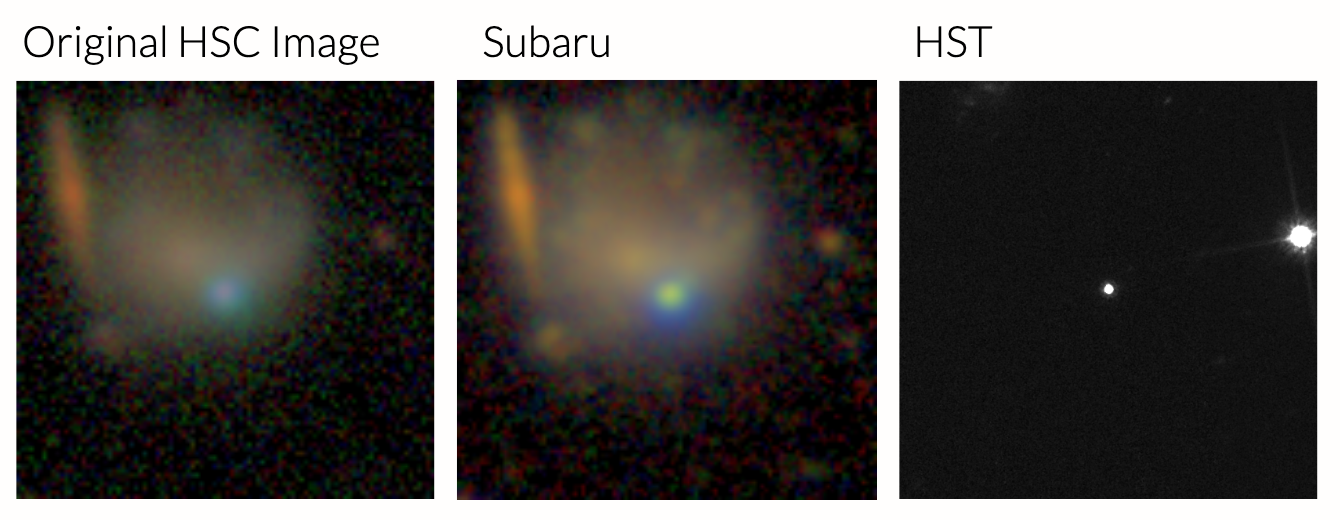
We had a quiet but interesting group meeting this week!
First, Trevor David shared some recent work with Gaby Contardo on looking at the exoplanet radius gap as a function of host star age and asked for feedback on methods for quantifying the gap width. He presented a few possible approaches, including fitting Gaussians to the 1D histogram of radii; fitting a line in the 2D radius-age plane by inverting the likelihood; or using a support vector machine model. We spent some time discussing what assumptions are being made in each of these cases. In particular, there was some debate about the validity of assuming Gaussian shapes for each of the two radius peaks. We also discussed the related problem of assigning individual planets to different sides of the radius gap. It might be necessary to perform the classification of data points in tandem with the characterization of the resulting gap in the distribution.
Next, Kate Storey-Fisher showed us an unusual galaxy in the Hyper-Suprime Cam data (pictured above). The HSC image of this galaxy was flagged by Kate’s GAN-based anomaly detection code, and archival data from Subaru and HST support its weirdness. Kate recently obtained a follow-up spectrum from Keck and she showed that the resulting placement of the source on the BPT diagram classifies it as a star-forming galaxy rather than an AGN. However, there are still some oddities, including possible markers of strong outflows. We spent time squinting through our Astronomer Goggles (TM) at the images and making extensive use of Zoom’s markup features. It’s always fun to dig into the data during data group meeting!
Finally, David W. Hogg showed us one of his quarantine projects: learning how to execute a perfect shuffle. He demonstrated that eight perfect shuffles in a row returns your deck of cards to the original ordering. This means that the permutation matrix corresponding to a perfect shuffle has the property that raising it to the eighth power returns the identity matrix. Linear algebra: it’s everywhere! We had a wide-ranging discussion covering combinatorics, psychology, and the entropy state of the universe. Our only real conclusion was that when playing poker with Hogg, you should insist on cutting the deck between shuffles.